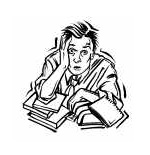
Losing Our Religion
Who doesn’t love statistics? Brace yourselves, because we’re about to throw a bunch at you.
Writing for Christianity Today (Feb. 20), Ryan P. Burge, a political scientist at Eastern Illinois University, delves into the latest Cooperative Congressional Election Study (CCES), a panel survey in which the same people are asked questions over an extended period of time — in this case, in 2010, 2012, and 2014. Burge highlights some interesting figures that indicate how likely our fellow countrymen are to “switch” their “religious affiliation.”
Protestantism remains the largest religious tradition in the U.S., so it is still fair to say that America is a Christian nation, in population if not in actual practice. But the release of each new dataset — whether from the Pew Forum, Gallup, Georgetown’s Center for Applied Research in the Apostolate, or Harvard’s CCES — confirms the changing nature of the religious landscape in the U.S. Over the four-year span under consideration here, nearly one in six Americans (or 18.9 percent) opted out of the religion with which they had initially identified.
For the Catholic Church, the CCES has both good and bad news. Catholics, as Burge puts it, have “remained pretty attached to their tradition.” Note the ambivalence in his phrasing. Catholics are not strongly attached or even plain old attached but pretty attached to Catholicism. That’s the good news. Catholics are approximately half as likely as the rest of Americans to switch out of their religious tradition.
You May Also Enjoy
Ferrara shows how public recognition of the true religion is essential to a Christian order; thus, this order requires a certain intolerance of false religion.
Could the continued separation of Christians into like-minded, like-colored pockets, or "bubbles," be a factor in racial inequality, racial tension, and overall injustice?
Cardinal George said U.S. society "is the civil counterpart of a faith based on private interpretation of Scripture and private experience of God."

